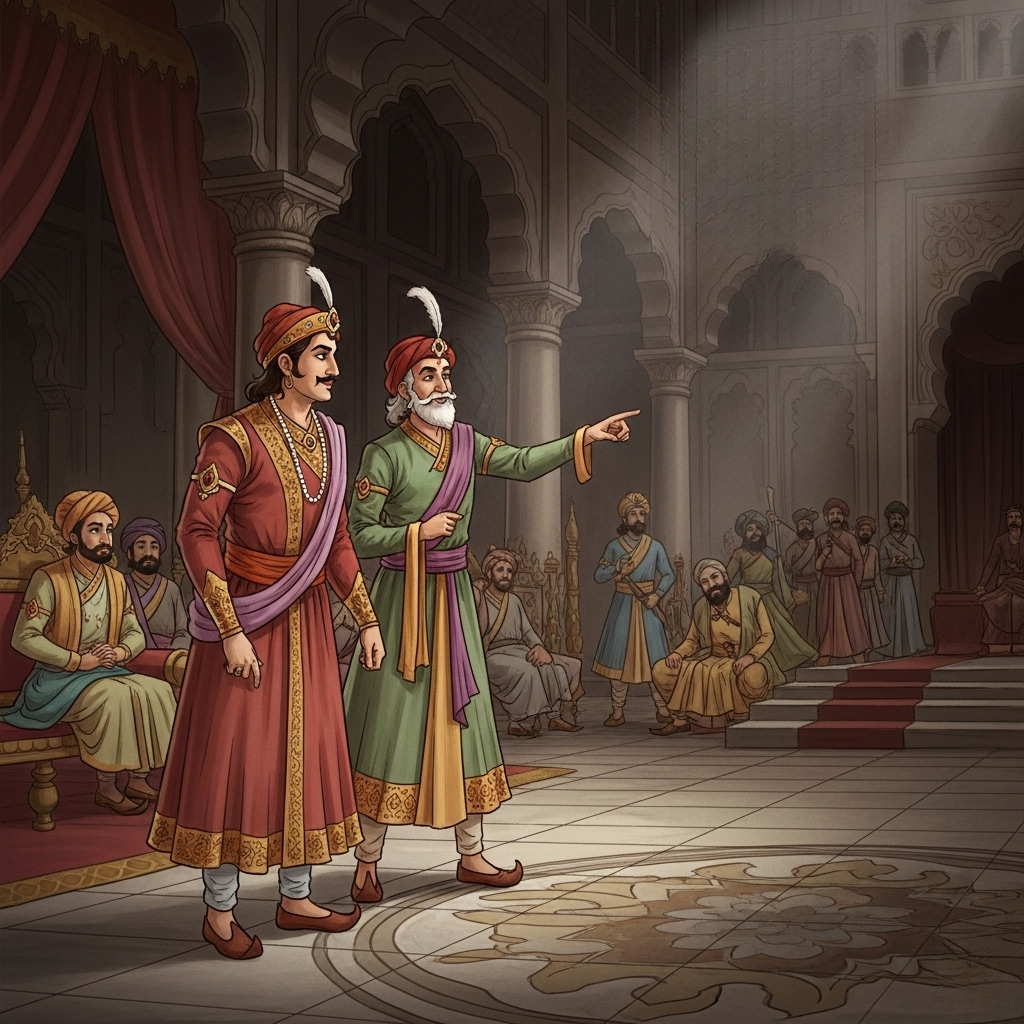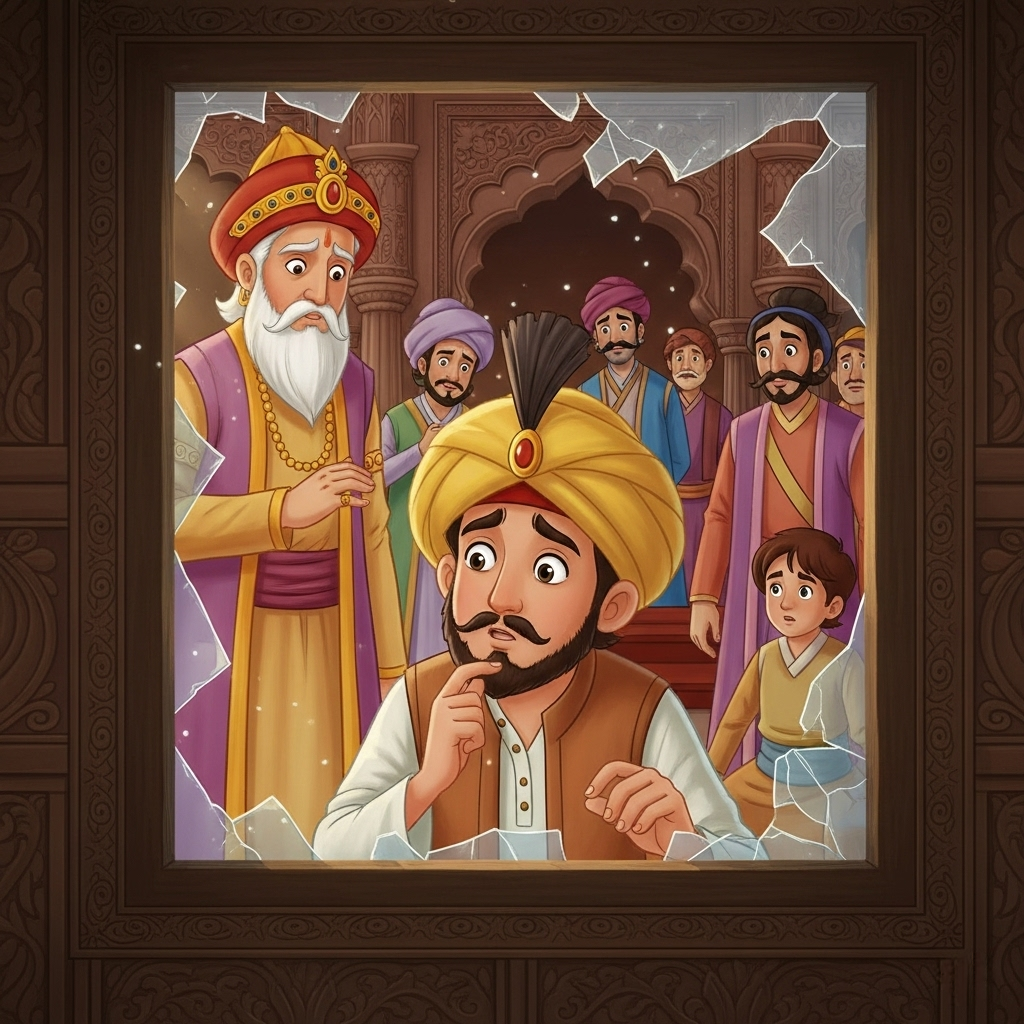
The Invisible Guest

One serene evening in the grand court of Emperor Akbar, the emperor sat deep in thought. Turning to his wise minister, Birbal, he posed an unusual challenge.
“Birbal,” Akbar said, “tomorrow, I want you to bring a guest to my court for dinner someone no one can see, but whom everyone respects.”
The courtiers burst into laughter. “How can someone invite an invisible guest?” they whispered among themselves. Even the wisest among them couldn’t fathom a solution.
But Birbal, known for his unmatched wit and wisdom, simply bowed and accepted the task.
The next evening, the court was abuzz with curiosity. As the feast was laid, Birbal walked in with dignity and bowed respectfully toward an empty chair beside him. He stood still and gestured with reverence.
“My lords,” Birbal announced, “I have brought the guest please welcome Time.”
There was a wave of silence. The courtiers looked around, puzzled.
Birbal continued, “Time is invisible to our eyes, yet it governs everything we do. It does not speak, yet it teaches the harshest lessons. It cannot be touched, yet it leaves its mark on all. It makes kings and takes them down. It heals wounds and punishes arrogance. What can be more worthy of our respect?”
Emperor Akbar’s face lit up with admiration. He stood and joined his palms. “You have once again shown your brilliance, Birbal. Indeed, there is no greater guest than Time unseen, but mighty.”
All in the court nodded in agreement, the laughter now replaced by deep reflection.
Moral: The greatest powers in life are often unseen like time, which rules us all.


